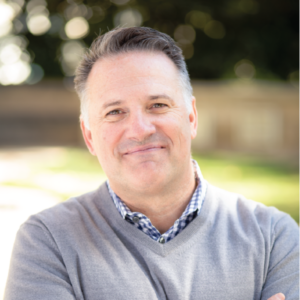How NOT to Waste a Crisis--The Delta Variant Edition
It has been a year since I wrote this article commending the Church Leaders that I have worked with for their resilience and creativity in the midst of the long, lingering pandemic. While some of the details have changed (I have now spoken to over 35,000 leaders around the world in over 150 webinars and events), the reality of the exhaustion and division and discouragement within churches lingers as they lead into truly uncharted territory.
And all the more so when we consider how deeply disruptive the Delta variant has been for our best laid plans for “opening up” again.
During the Pandemic I took on new coaching clients, consulted with more churches and ran a cohort of church teams who all wanted to keep learning. All in all, over 50 church leaders and their teams used this season of deep disruption to do some even deeper work. With my new cohort of Doctoral students, I now have over 70 students and grads working on adaptive challenges all over the world. As I too adjust to a changing world, here is what I am learning from these leaders:
- The best leaders are persistent learners. They look at every set-back, every disappointment, and every disrupted plan as an opportunity to learn, to grow, to discover what we didn’t know. In times of deep change the focus is not on getting wins, but on getting better. In the words of Brene’ Brown to Adam Grant (whose book Think Again, was one of my very favorites of the past year), “Don’t focus on being right, but getting it right.” And learning not only makes us better leaders, but also helps us develop the resilience to keep leading. When we are learning, we have a sense that something good will come out of this experience, even if we don’t yet know what it is.
- The best leaders are using the pandemic to help them address the deeper issues that were already present in their organizations or congregations and focusing on long-term transformation. After asking church leaders around the world what those deeper issues are, the answers (as varied as the churches themselves!) had a few common themes: A crisis of discipleship (we are not as “Jesus-like” as we thought we were), a crisis of community (we are not as committed to each other as we thought we were), a crisis of generations (we are losing—have lost?—1 million young people a year), a crisis of prophetic witness (after generations of being in the center of society we are unable to speak to the gross injustices of the world with biblical wisdom and prophetic commitment).
- Teams, Teams, Teams. In the words of the famous Silicon Valley “Trillion Dollar Coach”: “Don’t work the problem, work the team.” It is going to take true collaboration and genuine community to face our biggest challenges. We not only need leaders who are transformed, but true Transformation Teams. If there is anything that a bunch of us have learned from watching Ted Lasso on repeat, it is that we would gladly be part of a team that loses some games if we could build a truly life-transforming team where everyone (and not just leaders!) grows, develops and contributes to making the world a better place. And so the best leaders are truly team leaders and people developers. In a season where many people are reconsidering everything right down to the very work they are doing, it’s never been more true than ever that “people don’t quit jobs, they quit managers.” (Note to leaders: Are you having a lot of turnover in your organization? Are you losing both staff and key volunteers? You may want to get some feedback and soon on your management and leadership skills.)
- Technology is an extension of our biology and the future is hybrid. Whenever I meet a leader who is trying to decide between being “on campus” or “online,” I realize that they may have missed the biggest lesson of the pandemic. It is not just the pandemic that has changed us, but the very technology that helped us survive it. (I know, endless Zoom meetings are not the answer, but where would we have been without them?) Learning to wisely utilize technology to strengthen connections and bring people together for both discipleship and ministry work is one of the real discoveries of this disruptive time. If the church can’t survive in living rooms and in neighborhoods and backyards, getting back into a sanctuary without mask on isn’t going to solve anything.
So, as you enter into this next season (seasons?) of ongoing disruption and crisis, what do you need to learn? What do you need to move from surviving to thriving? What will help you NOT waste this “Delta variant” crisis?
Let me suggest one possibility: We have a 100% online learning cohort for adaptive change beginning in October. It is funded by the Lilly Endowment and is meant for a small team from different churches to learn how to lead change with other church teams. We have just a few spots left. But if you want to join us, we’d love to learn WITH you.
Let’s not waste THIS crisis.

Tod Bolsinger
Executive Director
Senior Fellow De Pree Center Associate Professor of Leadership Formation Fuller Theological Seminary Tod Bolsinger joined Fuller Seminary in 2014 as vice president for vocation and formation and he now serves as Senior Fellow at the D...


